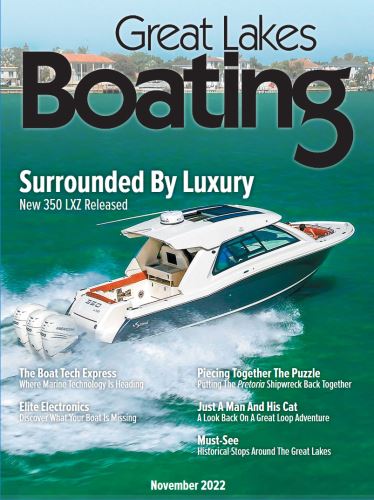By T.J. Pignataro
 While Illinois last month became the first state in the nation to pass a law banning microbeads, the movement to ban the sale of soaps and cosmetics containing the synthetic plastic particles has stalled in New York.
While Illinois last month became the first state in the nation to pass a law banning microbeads, the movement to ban the sale of soaps and cosmetics containing the synthetic plastic particles has stalled in New York.
The State Assembly passed a ban earlier this year, but the Senate recessed without doing so.
On other issues, state lawmakers made some advances on laws covering climate change, brownfields and invasive species, environmentalists said.
“The 2014 legislative session resulted in both progress and some missed opportunities to protect New York State’s water resources that support our blue economy,” said Jill Jedlicka, executive director of the Buffalo Niagara Riverkeeper.
Banning microbeads found in some facial cleansers, body washes and even toothpastes ranked among the most notable environmental bills this year in Albany.
When the tiny, plastic particles are washed down the drain, they bypass sewage systems and are discharged with treated water into lakes and rivers.
Scientists say the microbeads are “plasticizing beaches,” altering the aquatic food chain, promoting bacterial growth in water bodies and causing other environmental problems.
“Microbead pollution has the potential to undermine the billions of dollars of public and private investment into our water-based economies and negatively impact the progress of Great Lakes restoration,” Jedlicka said.
Scientists like Fredonia State College environmental sciences professor Sherri A. Mason – a leading national researcher on the issue – discovered microbeads were prevalent in Great Lakes waters two years ago and found some of the highest concentrations along New York’s Lake Erie shoreline.
“Plastic microbeads are harmful and completely unnecessary in our facial scrubs and toothpaste,” said Brian Smith, associate executive director of the Citizens Campaign for the Environment. “Safe, biodegradable and cost-effective alternatives are already on the market. Having a pretty face doesn’t have to mean polluted water.”
State Sen. Mark Grisanti, R-Buffalo, expressed disappointment over the failure to reach agreement on the issue before the close of the 2014 session on June 19.
Grisanti, the chairman of the Senate’s environmental conservation committee, sponsored legislation to ban the sale of microbeads in New York by the end of 2018.
“Unfortunately, negotiations on this legislation were long and intense and the senator was unable to get this bill passed this year,” said Doug Curella, Grisanti’s chief of staff. “Passage of this bill will be one of his top environmental priorities for next year.”
The new Illinois law – passed with the cooperation of the cosmetics industry – bans the sale of cosmetics and personal care products with microbeads by the end of 2018. Proctor & Gamble has said all of its products will be free of microplastics in 2017 and Johnson & Johnson announced it is phasing out microbeads. Companies are replacing microbeads with natural substances such as ground-up fruit pits, oatmeal and sea salt.
Brownfields cleanup
New York lawmakers extended to March 2017 the Brownfield Cleanup Program, which offers incentives to developers cleaning up contaminated properties for redevelopment.
The program was set to expire at the end of next year.
Grisanti called the program “a critical tool that encourages private investment in communities to get vacant and abandoned properties cleaned up and back on the tax rolls.”
Some environmental activists, however, said simply extending the program is insufficient.
The activists said the state is failing to live up to its promise to reform, adequately fund and expand brownfield redevelopment efforts.
“A temporary extension buys time but endangers the entire program, which is dependent on developers being assured long-term certainty of the program’s existence and rules,” said Travis Proulx, spokesman for Environmental Advocates of New York.
Curella called reforming the program a priority for Grisanti, but it has proven elusive in Albany.
Grisanti pushed to tighten eligibility requirements, prioritize sites and eliminate program fees.
“The senator was disappointed that a reform bill was not put forward, but believed it to be critical to extend out the current program as we continue to have substantial brownfield discussions,” Curella said.
The former 2015 sunset provision, according to Grisanti, prevented many developers from undertaking projects because they could not be sure whether the program’s incentives would be available to complete them.
It takes an average of 2.8 years for projects to obtain the documents necessary to be eligible for state tax credits.
Invasive species
The Aquatic Invasive Species Act requires boaters to clean, drain and dry watercraft and gear when entering and leaving any public boat launch.
“It is crucial that we prevent the spread of aquatic invasive species by requiring the decontamination of boats before launch,” said Kevin Chlad, legislative director of the Adirondack Council.
Whether for plants like hydrilla and watermilfoil or for aquatic creatures like Asian clams, zebra mussels and the spiny waterflea, it makes sense to make boaters disinfect their watercraft to keep it from infecting another body of water, he said.
“While most boaters adhere to this policy already, not all do and even one boater inadvertently failing to comply can accidentally transfer dangerous invasive species from body of water to body of water,” Curella said.
“When it comes to invasive species,” added Smith of the Citizens Campaign, “an ounce of prevention is worth a pound of cure.”
Climate change
In a response to Superstorm Sandy, Hurricane Irene and other storms that struck New York in recent years, lawmakers passed the Community Risk and Resiliency Act that imposes climate change considerations on developers seeking permits from state agencies for infrastructure projects like roads, bridges and sewers.
The legislation aims to protect infrastructure from “catastrophic weather emergencies” by requiring storm-water runoff and rises in sea level to be factored into developers’ calculations when seeking a state permit for projects.
“New York ... needs climate planning to address the impacts of the increasingly erratic and powerful weather patterns hurting our communities,” said Proulx of Environmental Advocates. “The legislature has taken an important first step by passing this bill.
Gov. Andrew M. Cuomo has not advocated for climate-related legislation yet in his term, Proulx said.
“He should make signing this bill into law ... a priority for the rest of 2014,” Proulx said.
Child-safe products
The New York League of Conservation Voters, in its “environmental progress report” gave the State Legislature an overall grade of B- on its priority issues.
“Among the highlights of the session was passage of the Community Risk and Resiliency Act, one of the environmental community’s highest priorities for the year,” the league said in a statement. “One of the major lowlights was the failure to pass the Child Safe Products Act, which would have regulated and phased out toxic chemicals in children’s products.”
“It is truly disappointing that the legislature could not reach consensus on efforts to get toxic chemicals out of children’s toys and products,” Marcia Bystryn, president of the New York League of Conservation Voters. “It is hard to imagine a more fundamental responsibility for our elected officials than protecting children’s health, and Albany’s inaction means our kids are still at risk.”
The Child Safe Products Act would have required manufacturers to identify the chemical components in products for children, including toys, bedding, personal care products and clothes. The legislation, which was passed in the Assembly, would have banned certain types of chemicals from being used such products.
“Toxic chemicals used in children’s products have links to cancer, reproductive problems, learning disabilities and chronic health problems,” Smith said. “Currently, toxic chemicals in children’s products are innocent until proven guilty.”
The bill would allow state agencies like the Department of Environmental Conservation or Department of Health to periodically review and remove dangerous chemicals or chemicals of high concern based on credible scientific evidence.
Although co-sponsored by nearly two-thirds of the Senate, the bill never came up for a vote.
Fracking
During the waning days of the legislative session, the Assembly passed a three-year statewide moratorium on hydraulic fracturing. It amounts to little more than a “ceremonial” vote since no fracking is going on in the state anyway.
“There is a de facto moratorium right now,” said Curella, Grisanti’s chief of staff. “You can’t go to the DEC right now and get a permit for fracking.”
“We’re still waiting to get that health impact study” from the Department of Health, Curella said.
http://www.buffalonews.com/city-region/environment/environmental-advocates-see-hits-and-misses-for-their-causes-in-albany-20140707

